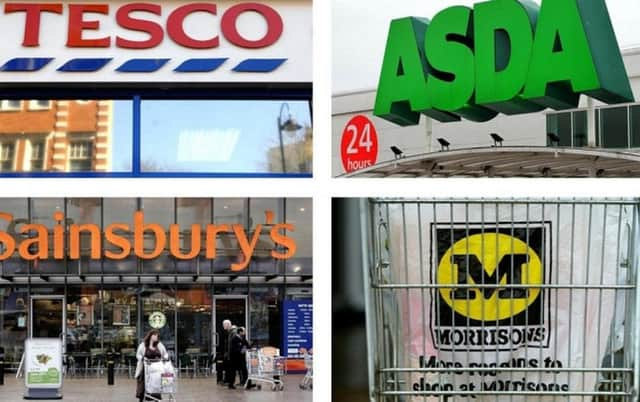New carrier bag charge rules come into force from October


The rules will apply to any business that sells or delivers goods, however, for nationwide retailers with fewer than 250 members of full-time staff the charge is optional.
Any unused, plastic bags with handles which are 70 microns thick or less will have a charge to the customer - sealed packaging isn’t covered by the charge.
Advertisement
Hide AdAdvertisement
Hide AdThis charge will also apply to online shopping orders, for example, Tesco have contacted customers highlighting the change: “So that we comply at tesco.com, unless you choose a bagless delivery, there will be a charge per order for an online grocery delivery or collection… worked out based on the average number of carrier bags needed to pack an order.”
In 2014 British supermarkets gave out 8.5 billion plastic bags, an increase of 2.3 % compared with 2013 (8.3 billion). The new 5p charge should hopefully reduce the number of plastic bags, which will be beneficial for the environment.
Similar 5p charges were introduced in Wales in October 2011; followed by Northern Ireland in April 2013 and Scotland in October 2014.
The scheme in Wales has seen a reduction in plastic bag consumption of 79% since it was launched in 2011. In Scotland, the number of bags handed out by supermarket has dropped by 147 million.
Advertisement
Hide AdAdvertisement
Hide AdBut the new rules could cause confusion for retailers and shoppers alike as many items are exempt.
Exemptions from carrier bag charge:
Uncooked fish and fish products Uncooked meat, poultry and their products.
Unwrapped food for animal or human consumption e.g. chips or food sold in containers not secure enough to prevent leakage.
Unwrapped loose seeds, flowers, bulbs, corns, rhizomes (roots, stems and shoots, such as ginger) or goods contaminated by soil.
Advertisement
Hide AdAdvertisement
Hide AdUnwrapped blades, including axes, knives, and knife and razor blades Prescription medicine Live aquatic creatures in water.
Woven plastic bags.
Goods in transport, such as at an airport or on a train, plane or ship.
Items considered as sealed packaging for mail order and click-and-collect orders.
Returnable multiple reuse bags (bags for life).
Bags used to give away free promotional material.
Bags used for a service where there’s no sale of goods e.g. dry cleaning, shoe repairs N.B. If even one non-exempt item is placed in the bag, cashiers must charge 5p.
Bag charges to help good causes
Advertisement
Hide AdAdvertisement
Hide AdRetailers are expected to donate all proceeds from carrier bag sales to good causes.
The biggest donations will be generated by the supermarkets.
In Scotland and Wales, Boots has been giving money from charges to Macmillan Cancer Support. From October, it will give all UK proceeds to Children in Need.
Morrisons will give money to the Sue Ryder hospices and Superdrug is donating the money to support Marie Curie Cancer Care.
However, the government is set to make £19m a year from the VAT attached to the sales of bags.
Find out more about charges for single-use plastic carrier bags.